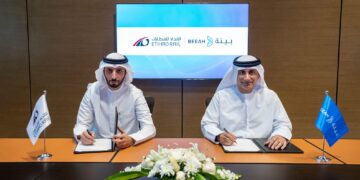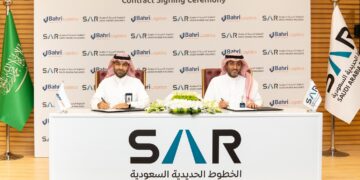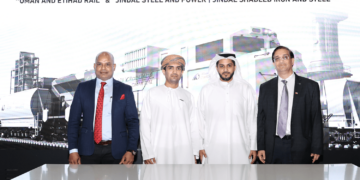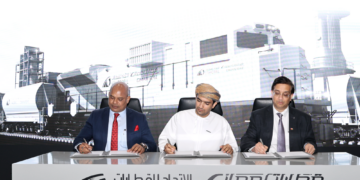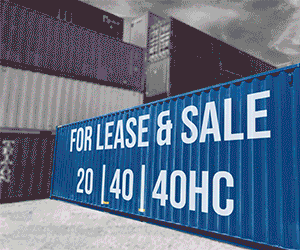With a capacity of 5mn tonnes, the rail freight supports the industrial and logistics sector in Dubai
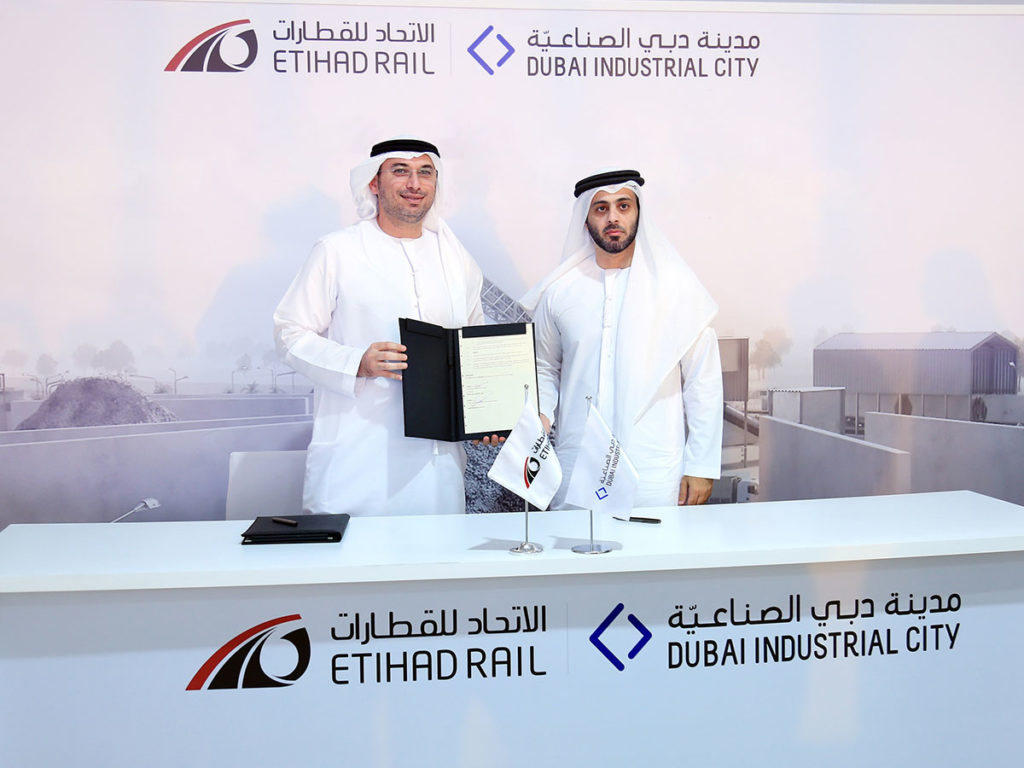
Etihad Rail, the developer and operator of the UAE’s National Rail network, and Dubai Industrial City, one of the region’s largest manufacturing and logistics hubs and a part of TECOM Group, have announced an advanced freight terminal spread across 5.5mn sqft.
The terminal, which comes as a result of the collaboration between Etihad Rail and Dubai Industrial City over the past years, will contribute to cementing the UAE’s position as an international trade hub and boost Dubai’s global competitiveness in manufacturing, logistics, transport, trade, and investment, a press communique indicated.
This comes in line with the UAE’s Railways Programme, which aims to facilitate trade by connecting the country’s industrial and manufacturing centres and opening new trade routes.
Key officials present
The announcement of the rail freight terminal was attended by Eng. Shadi Malak, CEO, Etihad Rail; Malek Al Malek, Director General, Dubai Development Authority and CEO, TECOM Group; Abdulla Belhoul, Chief Commercial Officer, TECOM Group; Saud Abu Alshawareb, Managing Director, Dubai Industrial City, and other officials and key representatives.
The rail freight terminal will complement Dubai and the UAE’s advanced infrastructure and state-of-the-art transport network, cementing the nation’s position as a gateway to the Middle East, North Africa and South Asia.
The terminal at Dubai Industrial City will deliver a major boost to the UAE’s Industrial Strategy, also known as Operation 300bn. Increasing the industrial sector’s contribution to the economy by building advanced logistics infrastructure will strengthen the country’s position as the leading Arab nation on the World Economic Forum’s Global Competitiveness Report.
Strengthening supply chain and freight logistics
“The terminal will contribute to strengthening the supply chain and freight logistics services, in line with the UAE’s efforts to develop the country’s transport and logistics sector. With a capacity of 5 million tonnes, the terminal will connect the industrial and manufacturing centres in the UAE, open new trade routes, and support the country’s sustainable development,” remarked Eng. Shadi Malak.
“The addition of rail into the UAE’s state-of-the-art infrastructure and transportation network will strengthen the nation’s leading position as a global trade and logistics hub,” commented Al Malek.
“The addition of the station will support the growth of business partners, expand the emirate’s logistical capabilities, and attract more investments in the industrial sector, thus consolidating its position globally,” noted Belhoul.
The new terminal builds on Dubai Industrial City’s proximity to Jebel Ali Port and Al Maktoum International Airport, which allows hundreds of companies to reach two-thirds of the world’s population in eight hours. It will provide a range of benefits to the 780 business partners in Dubai Industrial City and the surrounding areas, centred around improving efficiencies and reducing costs.
A global industrial and logistics hub
The development at Dubai Industrial City is part of Etihad Rail’s sustained efforts to generate maximum benefit for the National Railway project. Spread over 550mn sqft, Dubai Industrial City is a major business district for local and regional manufacturing and logistics and is strategically situated adjacent to Jebel Ali Port, Al Maktoum International Airport, and Dubai’s network of high-speed roads.
Facilitating economic and industrial growth
The new terminal is located within the Etihad Rail’s network which runs from Seih Shuaib to Dubai and Sharjah and forms a critical part of Stage Two of the UAE National Railway. As construction is ongoing in this phase, Etihad Rail continues to pursue strategic partnerships with a range of key entities. Such partnerships align with the company’s wider efforts to ensure this national project plays an important role in the sustainable economic development of the UAE.
Sustainable and reliable
The UAE National Railway will deliver wider national economic growth through an efficient, sustainable, safe, and cost-effective transportation network. Locomotives on the network are equipped with advanced emission reduction technology to cut carbon emissions by 70-80%. A single freight train can transport the same amount of goods as up to 300 trucks. Etihad Rail has also adopted international best practices and carries out constant Environmental Impact Assessments (EIAs) to minimise the environmental impact of the railway throughout its planning, development, construction, and operation.
Want to stay updated on the latest industry news and trends? Subscribe today to receive your monthly news highlights directly in your inbox!



